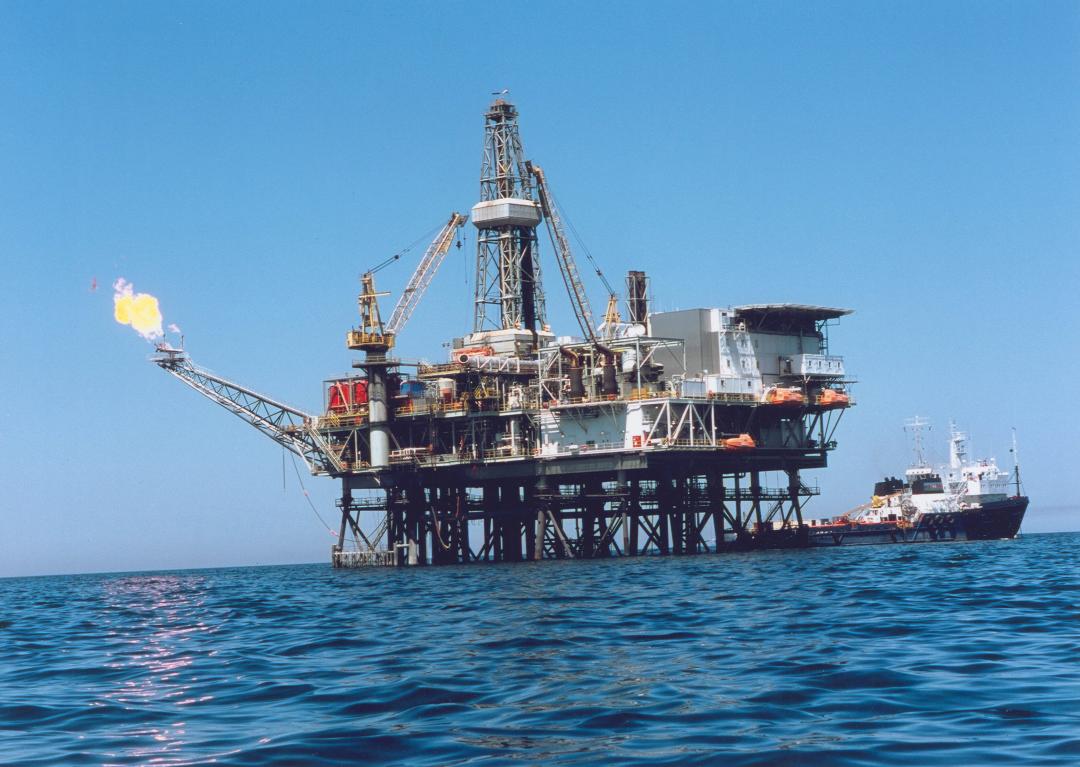
Azerbaijan Becomes Turkey’s Top Gas Supplier

Azerbaijan has become Turkey’s major gas supplier and this could have major geopolitical ramifications for the region. But it also fits into Turkey’s efforts of the past several years to diminish its dependence on Russian gas. Hence Ankara’s particularly harsh position regarding the recent Armenia-Azerbaijan fighting in the Tovuz region where regional gas, oil and railway infrastructure runs.
From January-May of this year, Turkey imported 4 527,39 cubic meters of Azerbaijani gas (from Shah Deniz field). This is some 20,4 percent more in comparison to the same period of 2019. On the other hand, in May 2020 the import from Russia diminished by almost 62% compared to the same month in 2019. In May 2020, Azerbaijan officially became Turkey’s top gas supplier.
Overall this is a continuation of the trend from 2019 when Azerbaijan’s share in Turkey’s gas supplies reached 21.2 percent, which is some 6.23 percent more compared to the same period of 2018.
This became possible after the launch of TANAP in late 2019. The $6,5 bln. project is essentially a part of the $40 billion Southern Gas Corridor with a number of pipelines connecting Azerbaijan’s Shah Deniz II field to the vast European market. TANAP has the capacity to transport up to 16 billion cubic meters (bcm) of Caspian gas per year: 10 bcm go to Europe and 6 bcm to the Turkish market. Potentially, the TANAP could have a capacity of up to 31 bcm.
Previously it was reported that the capacity of TANAP would reach a cap of 6 bcm of natural gas by the end of June. To reach this milestone the volume went up gradually, first reaching 11,3 million cubic meters (m3) (July 2019). Moreover, this July the highest volume of 17 million m3 was recorded.
This happens at the time when Russian gas flows to Turkey are at a low point. Repair works were announced, which further contributes to the decrease of the Russian gas potential in Turkey. As a result, the $7.8 billion, 930 km TurkStream pipeline, built across the Black Sea and inaugurated in early 2020, is superseded by Azerbaijan, as a major gas supplier. The trend is self-revealing. In 2017, Gazprom exported 52 percent of Turkey’s total gas imports, in 2018 the figure stood at 47 percent and in 2019 at just 33 percent (15.9 bcm).
For example, in March, Turkey received nearly 924 million m3 of Azeri gas, which maked up 23,45 percent of the total volume of gas supplies to Turkey. Azerbaijan also pushed Iran, which together with Russia, are now Turkey’s second and third largest gas providers.
The decrease of Russian gas flows is also caused by the Turkish national company BOTAŞ increasing imports from Algeria and Nigeria. For Gazprom it also becomes increasingly difficult to compete with large LNG supplies that Turkey imports from the US. A look at the dynamics of LNG imports reveals an interesting trend – over the past 10 years the share of LNG steadily increases in Turkey. In 2013-2019 period, the share of LNG in Turkish gas imports rose from 6.1 bcm to 12.7 bcm.
Geopolitics of gas supplies
The decline of Russian gas supplies means Turkey would have space for geopolitical manoeuvres in an increasingly unstable period of time when Russian influence grows along Turkey’s borders. Moreover, Ankara might gain even greater leverage as various contracts guaranteeing gas flows from Russia expire in coming years and extensive talks will likely be held.
Indeed, geopolitics might be at play behind Turkey’s moves and aspirations to diminish dependence on Russia as BOTAS, the company which oversees the country’s gas import, is a state-run enterprise. This means that what happens in Syria or elsewhere easily influences the calculus of Turkey’s gas industry.
And there are reasons to worry for Turkey as Russia’s military influence in Syria and the Black Sea grows, and differences over the Libyan conflict abound. It is thus natural for Turkey to look at different ways to reduce its dependence on Russian gas. This creates a perfect opportunity for Azerbaijan to enhance its position as the region’s major gas supplier and thus further solidify its relations with Turkey. Turkey, on the other hand, is interested in an unhindered flow of Azerbaijani gas and, as other regional or global powers, is willing to defend its gas supply chain politically and, if necessary, even use a limited military force.
Perhaps this could explain Turkey’s statements regarding the recent uptick of fighting between Armenia and Azerbaijan. The violence took place along the Tovuz district of Azerbaijan. Surprisingly, the region is far distanced from Nagorno Karabakh, which is usually a centre for either large-scale fighting (as in 2016) or daily small-scale disturbances along the contact line. What relates the fighting in Tovuz to the geopolitics of gas supplies is the fact that the region is a vital land corridor for regional transport and energy export routes. This includes the Baku–Tbilisi–Ceyhan (BTC) pipeline, the South Caucasus natural gas pipeline (SCP) and the Baku–Tbilisi–Kars (BTK) railway. This is the infrastructure which connects Azerbaijan to the West and represents a larger trans-Eurasian East-West corridor that has been championed by the West since the end of the Soviet Union. But more importantly, as argued above, the corridor allows Ankara to seek a partial alternative to the dependence on Russian gas. Therefore, any military moves near those strategic routes could invite Turkish action.
This could also explain why Ankara was especially vocal in its support for Baku during and after the Tovuz fighting. For example, Turkey’s defence industry chief stated the country was ready to help its eastern ally. Moreover, Turkey and Azerbaijan held military drills right after the end of the fighting. The exercises involved the land and air forces in multiple locations such as Baku, Nakhchivan, Ganja, Kurdamir and Yevlakh. The signal was clear: increased Turkish military cooperation with Azerbaijan might follow if threat to the infrastructure is not neutralized.
In the end, the clashes did not damage Azerbaijan’s energy and transport infrastructure, but both Baku and Ankara saw how vulnerable they could be. Both easily recall the Georgia-Russia war of 2008 when SCP, BTC and the Baku–Supsa oil pipeline were effectively shut down because of the ongoing military operations and general uncertainty in the South Caucasus.
As Turkey aims to transform itself into the region’s energy hub rather than serving only as a transit country, its relations with Azerbaijan will likely further solidify. Azerbaijani gas will continue to play a vital role in this emerging Turkish strategy. Moreover, both will seek deeper military cooperation to defend its critical infrastructure. Perhaps, this could serve as a necessary impulse for the Trilateral format of Turkey-Georgia-Azerbaijan to expand their cooperation. Much will also depend on Russian gas supplies, but as the gas supply trend of recent years and regional geopolitical developments indicate, Turkey will continue decreasing its dependence on Russian import.
Emil Avdaliani specializes on former Soviet space and wider Eurasia with particular focus on South Caucasus and Russia's internal and foreign policy, relations with China, the EU and the US. He can be reached at emilavdaliani@yahoo.com.
See Also


3+3 Initiative as a New Order in the South Caucasus

Economic Cooperation Between Armenia and Georgia: Potential and Challenges Ahead

Russia and Occupied Abkhazia: A New Type of Relations

Georgia and US: From Close Ties to Caution

